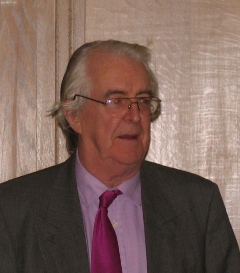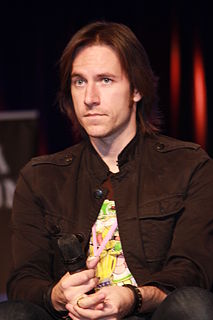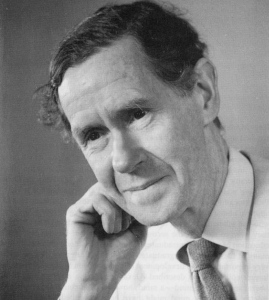A Quote by Charles Hampden-Turner
It is in vain that we search for an essential difference between good and evil, for their constituents are the same. The crucial distinction lies in their structure, i.e., the manner in which the pieces are assembled. Evil is disintegration, an angry juxtaposition of alienated opposites, with parts always striving to repress other parts. Good is the synthesis and reconciliation of these same pieces.
Related Quotes
The true secret of natural goodness lies in the recognition of the contending rights of the Pairs of Opposites; there is no such antimony as between Good and Evil, but only balance between two extremes, each of which is evil when carried to excess, both of which give rise to evil if insufficient for equipoise.
There's always the same amount of good luck and bad luck in the world. If one person doesn't get the bad luck, somebody else will have to get it in their place. There's always the same amount of good and evil, too. We can't eradicate evil, we can only evict it, force it to move across town. And when evil moves, some good always goes with it. But we can never alter the ratio of good to evil. All we can do is keep things stirred up so neither good nor evil solidifies. That's when things get scary. Life is like a stew, you have to stir it frequently, or all the scum rises to the top.
When one has once accepted and absorbed Evil, it no longer demands the unfitness of the means. The ulterior motives with which youabsorb and assimilate Evil are not your own but those of Evil.... Evil is whatever distracts. Evil knows of the Good, but Good does not know of Evil. Knowledge of oneself is something only Evil has. One means that Evil has is the dialogue.... One cannot pay Evil in installments--and one always keeps on trying to.
I think of moral beauty as what is the good and the just - terms perhaps best defined by their opposite: evil. Evil is the willingness to do damage to the other; its maximal expression is murder, but it includes a great deal of subtle and not-so-subtle injuries as it advances to that extreme. Evil acts reduce the other to an object, a being to its component parts, and obliterate subjectivity. Evil's breeding ground is a lack of empathy.
I don't know that I make a big distinction between the big pieces and the little pieces, because I don't experience them in that way. I mean, by the same token, you're out touring with a band and then you're writing string quartets, and in a funny way, isn't it all the same, in a way? It's all just music.
Good and evil are essential differences of the act of the will. For good and evil pertain essentially to the will; just as truth and falsehood pertain to the reason, the act of which is distinguished essentially by the difference of truth and falsehood (according as we say that an opinion is true or false.) Consequently, good and evil volition are acts differing in species.
God is omnipotent; God is wholly good; and yet evil exists. There seems to be some contradiction between these three propositions, so that if any two of them were true the third would be false. But at the same time all three are essential parts of most theological positions: the theologian it seems, at once must adhere and cannot consistently adhere to all three.
When anything is in the presence of evil, but is not as yet evil, the presence of good arouses the desire of good in that thing; but the presence of evil, which makes a thing evil, takes away the desire and friendship of the good; for that which was once both good and evil has now become evil only, and the good has no friendship with evil.
































